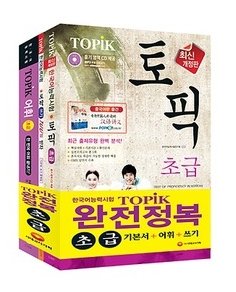I finally had some time to look at my
TOPIK books and start to do some studying with them.
As I posted
earlier I chose the vocabulary book, as I think this is the easiest to self study with. The book is great and contains a list of vocabulary with the English Chinese and Japanese translation. The vocabulary is broken up into
small lists (14 words) on the left page and
example sentences (2 for each word) on the following 2 pages and then a test / worksheet on the next few pages.
1. 가방 - Bag
가방 안에 책이 있어요.
가방이 크지만 가벼워요.
2. 가운데 - Centre (middle/between)
연필은 책하고 안경 가운데에 있어요.
아이는 아버지하고 어머니 가운데에 있어요.
3.거울 - mirror
거울을 보고 있어요.
거울을 닦아요.
4. 걱정 - worry
내일 시험을 보는데 준비를 못 해서 걱정이에요.
너무 걱정하지 마세요.
5. 건너편 - The opposite side
하교 건너편에 은행이 있어요.
우체국 건너편에 병원이 있어요.
I started with the first 5 words and sentences, I could understand most of the sentences but then I hit a problem with self study... if I was going to commit these to memory, I needed to make sure that I was pronouncing them correctly, I had an idea!
Using the Google translate APP on my android phone I discovered a way that I was able to self correct my pronunciation. This is how I did it;
 |
| Google Translate |
...rather than typing the sentence into google translate and then listening to and trying to mimic the pronunciation of the google translate voice, I though why not read (say) the sentence in Korean and self correct my pronunciation until the software recognises the sentence correctly (usually a couple of times). the added benefit of this is that you have to say it quite quickly, if you pause,
translate thinks that you have finished speaking and processes the audio to return the matching sentence and translation. So I am learning the sentence, correct pronunciation and natural speed and memorising it through repetition all in one hit. This will, of course, work for any language self study and I am going to make this method part of my study plan.








